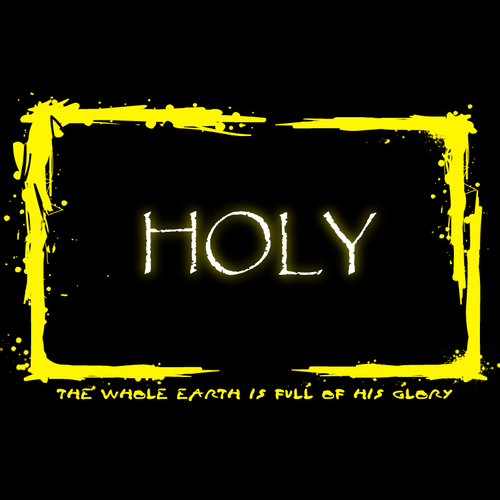Of all the attributes of God, there is one that stands above them all – Holiness. The Bible tells us that this truth is continually being declared around His throne in heaven – “they rest not day and night, saying, Holy, holy, holy, Lord God Almighty” (Revelation 4:8). No one can claim true holiness except for God, yet the elevation of ourselves and assertion of our own goodness became the root of all sin. Adam and Eve ate of the forbidden fruit in the garden because they were enticed to become “like God”. In fact, Satan himself (the author of sin) was cast out of heaven for this very reason as he declared, “I will ascend into heaven, I will exalt my throne above the stars of God … I will be like the most High” (Isaiah 14:13-14).
Yet, when humans have been confronted with just a glimpse of God’s holiness, we have cowered in shame. For it is in the light of His perfect holiness that our own sin becomes exposed and we see ourselves as we really are. The prophet Isaiah said, “Woe is me! for I am undone; because I am a man of unclean lips … for mine eyes have seen the King, the LORD of hosts” (Isaiah 6:5).
The one man who got the closest to seeing God’s true holiness was Moses. The Bible tells us that God spoke to him directly. Yet when he was confronted with the burning bush in the wilderness, Moses was told to “put off thy shoes from off thy feet, for the place whereon thou standest is holy ground” (Exodus 3:5). Later in His ministry he asked God to show him His glory and God said, “Thou canst not see my face: for there shall no man see me, and live” (Exodus 33:20).
John the Baptist was a special man of God who was chosen from the womb to prepare the way for the coming of Jesus Christ. However, he did not hesitate to exalt the holiness of Christ, saying, “He that cometh after me is mightier than I, whose shoes I am not worthy to bear” (Matthew 3:11).
I’m afraid that we haven’t really considered the greatness of the holiness of God as it stands in bold contrast to our own lives. Our culture has been consistently and gradually causing us to diminish respect for those in authority. We have grown to treat political leaders, police officers, judges, teachers, doctors and other once-respected positions with suspicion and disrespect. We have begun to think they should be treated just like everyone else.
These same attitudes have crossed over into our worship of God. No longer do we wear our “Sunday best” to church. No longer do we set Sunday aside as holy to the Lord. No longer do we truly have a heart of gratefulness and a sense of our own unworthiness during times of worship. Preachers cast God in a light that paints Him as if He were one of us. Pastors are told in seminaries to put the “cookies on the bottom shelf” during their sermons. The influence of culture and our evolving attitudes and practices have only served to erode our understanding of what God’s holiness demands of us.
“He must increase, but I must decrease” (John 3:30) was the cry of John the Baptist regarding Jesus Christ. Only when we truly come to terms with our own unworthiness will we begin to grasp the true worthiness of the God we claim to love. Like Moses, John the Baptist, the prophet Isaiah and others who have encountered God’s holiness through the ages, we must be drawn to our knees when confronted with the holiness of God. Take some time today to reflect on the holiness of God – and be humbled by it.

